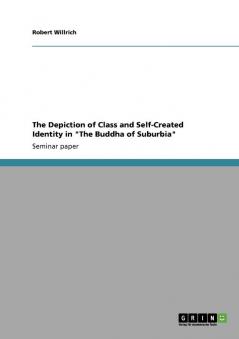English
Paperback
₹1397
₹1862
24.97% OFF
(All inclusive*)
Delivery Options
Please enter pincode to check delivery time.
*COD & Shipping Charges may apply on certain items.
Review final details at checkout.
Looking to place a bulk order? SUBMIT DETAILS
About The Book
Description
Author
Seminar paper from the year 2009 in the subject English Language and Literature Studies - Literature grade: 13 University of Bamberg course: London in Literature through the Ages language: English abstract: Being one of Hanif Kureishi's most famous works The Buddha of Suburbia has been discussed numerously in academic writing. Up to now most scholars have unfortunately only focussed on the most apparent topics of hybridity and racial as well as migrational identity. Although fairly striking only few have paid attention to the British class system that is portrayed in the novel and if they have only in passing. This paper is not intended to be added to this long list. I rather want to concentrate on how diverse and comprehensively the topic of class is approached by Kureishi how class is depicted. For this reason I want start with some more general facts about lower middle class but will try to directly compare them to the contents of The Buddha of Suburbia. Secondly I aim to show how especially class is depicted and to describe what makes someone belong to a certain class. How is affiliation expressed and how can one distinguish from other social groups? What does influence our thoughts and beliefs and why do people want to break out? In regard to this I will pay special attention to how the suburbs are presented in the novel and to what extent they differ from London. Finally I want to examine in how far London offers a chance to flee suburbia and lower middle class influences. Does the anonymity of England's capital provide the basis for a new self to create something new and leave the past behind? Do people have to surrender not to say sacrifice their old identities in order to make it in London? What is the price for climbing the social ladder and can one find a new but genuine self after having left the old behind? My paper shall answer these questions it seeks to unfold some of the complexity of Kureishi's début novel and to offe
Delivery Options
Please enter pincode to check delivery time.
*COD & Shipping Charges may apply on certain items.
Review final details at checkout.
Details
ISBN 13
9783640542932
Publication Date
-03-03-2010
Pages
-52
Weight
-77 grams
Dimensions
-148x210x3.16 mm











